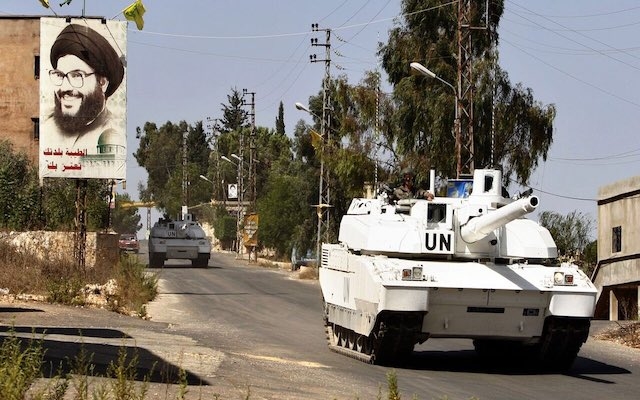On Thursday, the United Nations Security Council overwhelmingly voted to extend the mandate of the United Nations Interim Force in Lebanon (UNIFIL) stationed in southern Lebanon. With 13 out of 15 council members supporting the resolution, the language of the mandate was retained, allowing UNIFIL to act autonomously—without requiring coordination or approval from the Lebanese government.
This decision comes amidst rising concern over the proliferation of military installations that have been erected along the Blue Line, a demarcation delineating the boundary between Israel and Lebanon. These installations are allegedly managed by the "Green Without Borders" organization. The Israeli government has persistently called attention to these compounds, asserting that they serve as operational hubs for the Hezbollah organization. Following the Security Council's vote, Lebanon's representative at the UN voiced strong criticism of both the resolution and the language it employed.
South #Lebanon Shia comment on UNIFIL, mandate renewed today, describe it as Chicken that lays golden eggs, employs 1000s of locals, oligarchs profit by supplying the force tasked (&failed) with keeping peace with #Israel.
— Hussain Abdul-Hussain (@hahussain) September 1, 2023
Annual budget $500 million, 2.5 percent of Lebanon GDP.
Gilad Erdan, Israel's ambassador to the UN, who has been diligently working behind the scenes to ensure the mandate’s extension in a form favorable to Israeli interests, commended the Security Council's decision. He stated, "I welcome the Security Council’s steadfastness in preserving UNIFIL’s autonomy and its capacity to conduct independent inspections. I shall persist in urging the Security Council to condemn Hezbollah unequivocally and to pressure the Lebanese government to counter Hezbollah’s military build-up, which has the potential to escalate tensions dangerously within the region."
Israel's Foreign Ministry also lauded the move, declaring, "UNIFIL plays a crucial role in upholding stability in southern Lebanon. We urge the international community to resolutely stand against Hezbollah’s efforts to foment discord and escalate tensions."
Today is the renewal of the @UNIFIL_ mandate, whose peacekeepers are stationed on the #BlueLine between Israel and Lebanon.
— Israel Defense Forces (@IDF) August 31, 2023
UNIFIL is fundamental in helping maintain stability in the region, enforcing resolution #UNSC1701
Notably, the mandate's extension transpired amid escalating tensions along Israel's northern border. Hezbollah has audaciously advanced its forces closer to the border, emboldened, it appears, by a confluence of factors: Israel's perceived internal fragility due to ongoing judicial reform protests, as well as increased pressure from Iran encouraging the militant organization to ramp up its hostile activities against Israel. In addition, international initiatives aimed at stabilizing a tottering Lebanon inadvertently bolster Hezbollah’s standing.
Hizbullah Secretary-General Hassan Nasrallah: UNIFIL Is an Armed Foreign Force that Is Violating Lebanon’s Sovereignty, Spying for Israel #Hizbullah #Lebanon @UNIFIL_ pic.twitter.com/jFnlWlN7qN
— MEMRI (@MEMRIReports) August 31, 2023
Of particular significance is the fact that this marks the first occasion where the UNIFIL mandate was not extended by a unanimous vote from all 15 Security Council members. The absence of support from Russia and China can be interpreted as a manifestation of the growing schism within the Security Council, exacerbated by strained relations between these nations and the United States.


